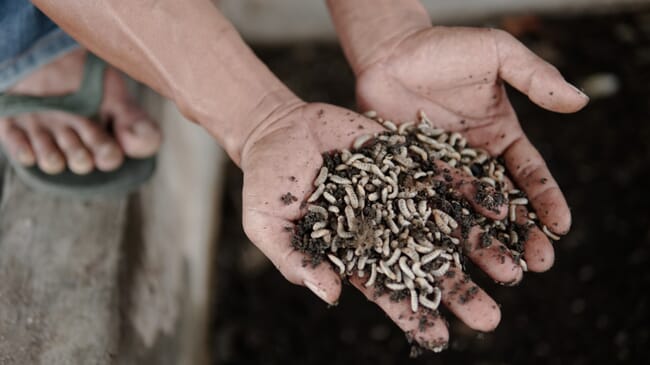
However, production of the insects will need to be significantly increased if they are to make a meaningful contribution to the aquaculture sector
Lambarin Investimentos, a Brazilian family office and wealth management firm, has also joined the seed funding round.
Cyns specialises in sustainable insect-based animal nutrition, having been the first company to obtain regulatory approval to produce and market black soldier fly-based ingredients for animal nutrition in Brazil.
The company is located in Piracicaba, Sao Paulo, the most prominent agtech valley in Brazil, and has developed a unique, cost-competitive horizontal BSF rearing system that delivers high bioconversion rates with minimum HVAC requirements by leveraging Brazil’s naturally-suitable conditions for BSF rearing and large availability of sustainable food byproduct streams which are used as the source of nutrition for BSF larvae.
Cyns originated in 2015 as a project incubated by Bug Biological Agents, which was the pioneer in insect rearing for biological pest control in Latam. In 2020, it received its first angel investment from Lambarin Investimentos, and in 2022 Cyns opened Brazil’s first BSF industrial pilot to receive regulatory approval. Since then, Cyns has successfully introduced its ingredients to the pet food market, and now has plans to move into aquafeeds too.
“We are excited to support the accelerated growth and distribution of alternative feed ingredients needed for animal feeds in Latin America,” said João Simões, insect protein project leader at Sumitomo Corporation do Brasil, in a press release.
“Ensuring a sustainable supply chain while reducing its carbon footprint is critical in today’s business landscape, and we are proud to partner with Cyns to accomplish this important work," he added.
“We believe that we have an extremely competitive technology and have developed a very high quality product. The partnership with Lambarim and Sumitomo will expand our commercial operations in America and around the world and allow us to scale production at the levels that this business demands," said João Pisa Cyns director.
Expansion plans
Sumitomo and Lambarin’s new investment will support Cyns’ next stage of growth, in which they plan to establish a brand new BSF rearing facility that will be able to produce 1,000 tonnes of BSF meal per year, and reach new markets including dog and cat food, aquaculture and monogastric livestock in Brazil and Latam. The company is also preparing for its Series A investment round, expected for 2026, when the company should be ready to expand production capacity in Brazil and internationally, starting from neighbouring countries in South America.
Insect-based nutrition is seen as having potential to significantly reduce the carbon footprint of animal nutrition, which together with agriculture, makes up the second largest source of greenhouse gas emissions (roughly 25 percent of all emissions).
Insect-based ingredients are known for having a much lower carbon intensity than those of its plant and animal-based ingredient counterparts, and their use can reduce the carbon footprint of pet food and animal feed by over 60 percent.
Together with the investment, Sumitomo Corporation do Brasil has also inked a commercial partnership agreement with Cyns, under which Sumitomo Corporation do Brasil will be in charge of application development and R&D, as well as marketing Cyns’ products in the Americas.




